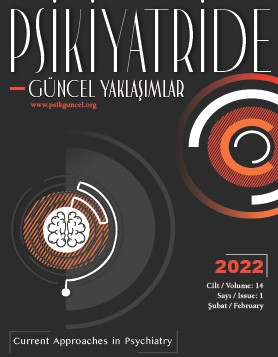Bilişsel Esneklik ve Psikolojik Esneklik Kavramlarının Karşılaştırılması
Comparison of Concepts of Cognitive Flexibility and Psychological Flexibility
Author(s): Şebnem Aslan, Fulya TürkSubject(s): Cognitive Psychology, Psychology of Self, Behaviorism, Health and medicine and law
Published by: Çukurova Universitesi Tip Fakultesi Psikiyatri Anabilim Dalı
Keywords: Cognitive flexibility; cognitive behavioral therapy; psychological flexibility; acceptance and commitment therapy;
Summary/Abstract: Individuals need to have some abilities in order to cope with the difficulties that they may experience. Cognitive flexibility and psychological flexibility are within the scope of these abilities. Cognitive flexibility is a person’s being capable of having awareness about alternative options throughout his/her life, and being able to change initial thoughts by taking into consideration these options, and behaving according to the option that they chose. Cognitive flexibility is a concept that has been frequently associated with cognitive behavioral therapies. Psychological flexibility is based on six main components (acceptance, contact with the present moment, cognitive defusion, self as context, values and committed action) and it includes one’s accepting his/her feelings, thoughts and past experiences without trying to change them, living in the present moment, defusing from his/her thoughts, and living a value directed life by determining his/her values. Increasing the level of psychological flexibility is the main purpose of acceptance and commitment therapy (ACT). In this study, firstly cognitive flexibility was explained in the perspective of cognitive behavioral therapies, and related studies in literature were referred. After that, psychological flexibility was explained in the perspective of ACT, and studies related to this concept were presented in a similar way. Finally, cognitive flexibility and psychological flexibility were examined in terms of their similar and different aspects. Additionally, associated suggestions were presented for researchers and mental health professionals
Journal: Psikiyatride Güncel Yaklaşımlar
- Issue Year: 14/2022
- Issue No: 1
- Page Range: 119-130
- Page Count: 12
- Language: Turkish

